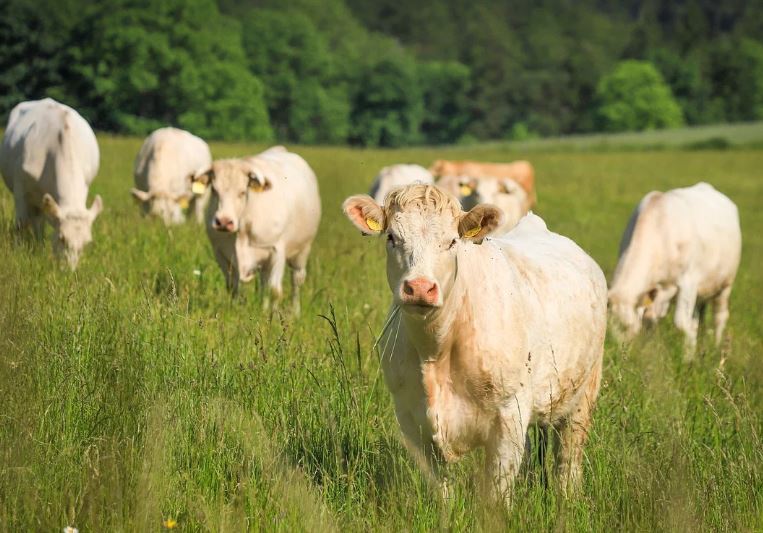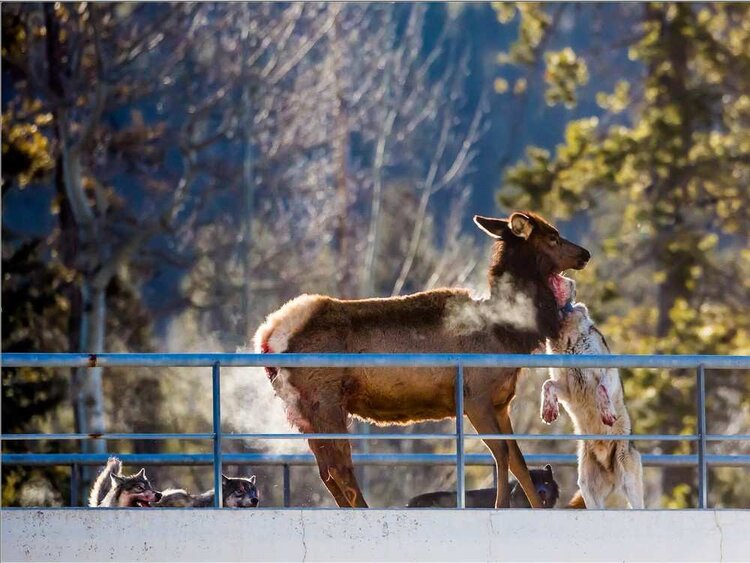9th Circuit hears wolf-cattle conflict case
Defendants argue the state manages wildlife
Charles Wallace
Western Livestock Journal
The 9th Circuit Court of Appeals in Portland, OR, recently heard arguments that the U.S. Forest Service (USFS) failed to analyze the impacts of livestock grazing on gray wolves in the Colville National Forest.
The Colville National Forest encompasses over 1.1 million acres in the northeastern portion of Washington. Grazing allotments cover about 745,000 acres of administered forest lands on 58 grazing allotments, where 42 currently have permitted use and 16 are vacant.
“This case is about the Forest Service’s duty to responsibly manage cattle grazing that it authorizes to occur in the Colville National Forest to prevent harm to wolves,” said Jennifer Schwartz, staff attorney for WildEarth Guardians, one of the plaintiffs in the case.
The case was filed in 2020 by WildEarth Guardians, Western Watersheds Project and Kettle Range Conservation Group against USFS. The groups argued the agency violated the National Environmental Policy Act (NEPA) and National Forest Management Act (NFMA) through their failure to address the impacts to gray wolves. The groups also argued USFS failed to consult with the U.S. Fish and Wildlife Service over the potential impacts of livestock grazing on endangered species under the Endangered Species Act (ESA).
The U.S. District Court for the Eastern District of Washington denied the plaintiff’s request under NEPA and NFMA, as the Washington Department of Fish and Wildlife (WDFW) is the lead agency responsible for wolf management, including the lethal removal of wolves. U.S. District Judge Rosanna Peterson also ruled the plaintiffs failed to show any injury from the revised 2019 Colville National Forest Plan, and NFMA challenges to the forest plan are “not ripe for adjudication because the forest plan neither authorizes livestock grazing nor wolf depredations.”
Schwartz argued before the three-judge panel that USFS allowing cattle grazing in the forest has resulted in the “recurring cattle depredations here in the first place to get wolves killed.”
Judge John B. Owens asked Schwartz about the legal status of WDFW’s wolf management plan and whether the director could stop wolf killings. Conversely, he wondered if there was no grazing and the director decided to kill wolves as a preventative measure, is there a state or federal law to prevent it?
Schwartz stated the lethal control protocol within the management plan is nonbinding, and the director could state what control measures WDFW could use. Schwartz continued gray wolves are a state-listed endangered species, so the director could not arbitrarily order the removal of wolves.
“(WDFW is) purely killing wolves in response to conflicts with livestock, and if the conflicts were mitigated, there would be no basis for them to kill wolves for any other reason, at least not while they remain in that protected status,” Schwartz replied.
Schwartz said it is USFS that controls all aspects of authorizing livestock grazing in the forest, and the agency could make decisions that reduce the harm to wolves from livestock grazing. Schwartz pointed out that USFS does not need to regulate WDFW for the plaintiffs’ standing in the case.
“Instead, causation turns on whether the defendant agency here, the Forest Service, is a necessary party in the chain of events that lead to the harm to plaintiffs’ concrete interests, and the Forest Service by being the one to authorize and control the grazing, that is the source of these conflicts and is undeniably a necessary party,” Schwartz argued.
“They don’t need to be the final link in the causal chain here. If (WDFW) has the proverbial final link in the chain, that final link could be severed by the Forest Service’s grazing management choices.”
The Washington Cattlemen’s Association submitted an amicus brief stating the suit seeks to set a far-reaching precedent by making federal agencies responsible for state wildlife control.
Schwartz made the point that there are 42 active allotments in Colville National Forest, and the majority of depredations occur on five allotments leased by Diamond M Ranch. Diamond M Ranch has intervened in the case, but Chris Montgomery, the lawyer for Diamond M Ranch, did not present any arguments at the hearing.
Schwartz suggested USFS could close a portion of the allotments and follow guidelines to reduce wolf conflicts, such as removing sick calves, only allowing older cattle to graze in allotments and maintaining a human presence to monitor herds.
Robert Stockman, counsel for USFS, argued the plaintiffs do not have standing, as it is the state that manages wildlife, unless the matter involves the ESA.




